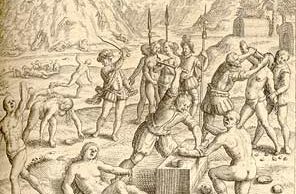What Assata Shakur Means to Me
By Randall C. Bailey
As I have reviewed the life of Assata Shakur, I am reminded of the history of Black struggles in the US and globally and the ways in which Black women have stood up and have courageously worked for the liberation of our people living under genocidal conditions and institutions. Her joining forces with Black men modeled how not only racism has to be deconstructed but also how heteropatriarchy has to be deconstructed. Her refusing to speak at her trial was in the frame of Nat Turner not speaking at his. In essence, this is in the line of African Martyrdom, where the martyr knows that to speak in the face of unjust tribunals gives legitimacy to the event, and, thus, one must be silent. Her engaging the struggles to dismantle white supremacy are in line with her fore-mothers Harriett Tubman, Sojourner Truth, Ida B. Wells, and her contemporaries, Kathleen Cleaver, Angela Davis, and Audre Lorde. Her living in exile brings to remembrance Paul Robeson, Josephine Baker, and James Baldwin. In essence, Assata Shakur’s story and life incorporate many of the most positive but often not celebrated aspects of our people’s history of struggles.
_____________________________________
Randall C. Bailey, PhD, is Andrew W. Mellon Distinguished Professor of Hebrew Bible at the Interdenominational Theological Center in Atlanta, GA.




0 comments